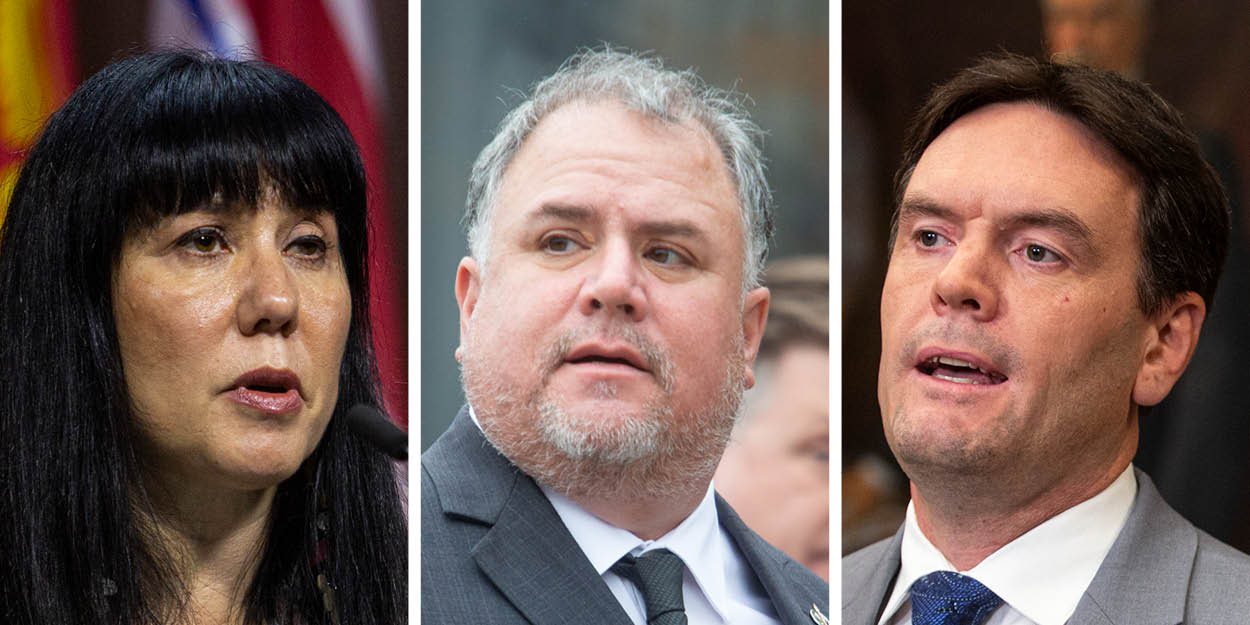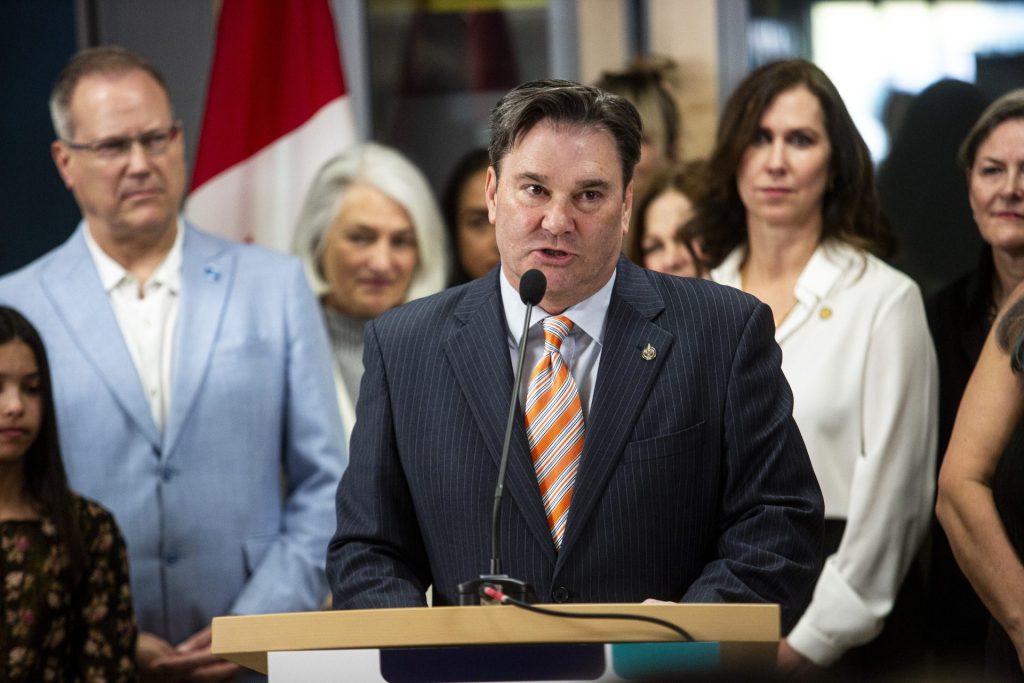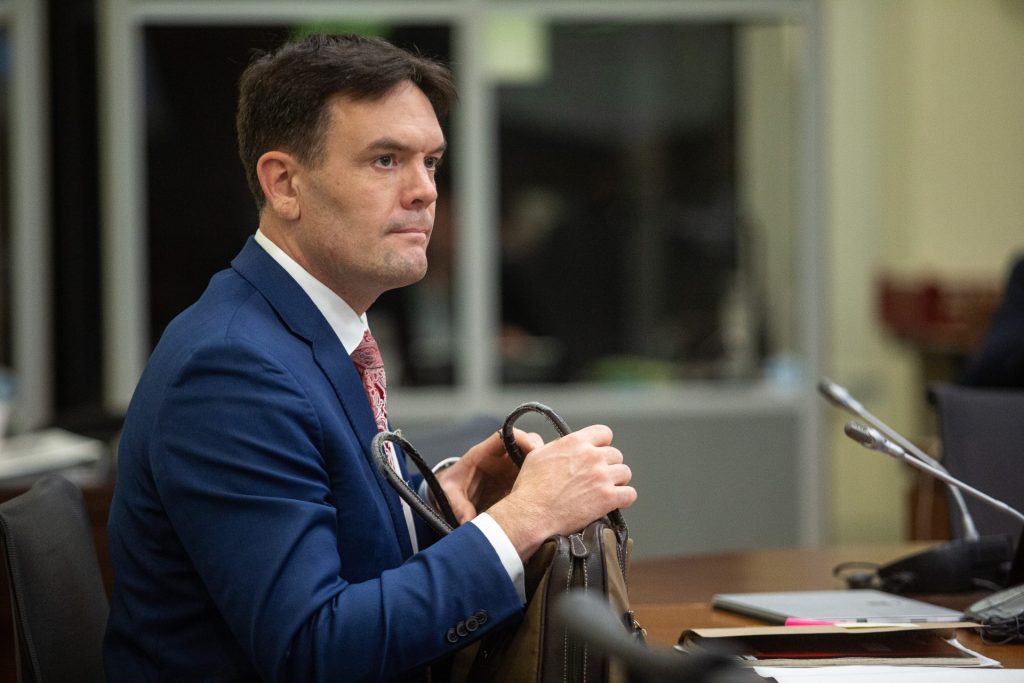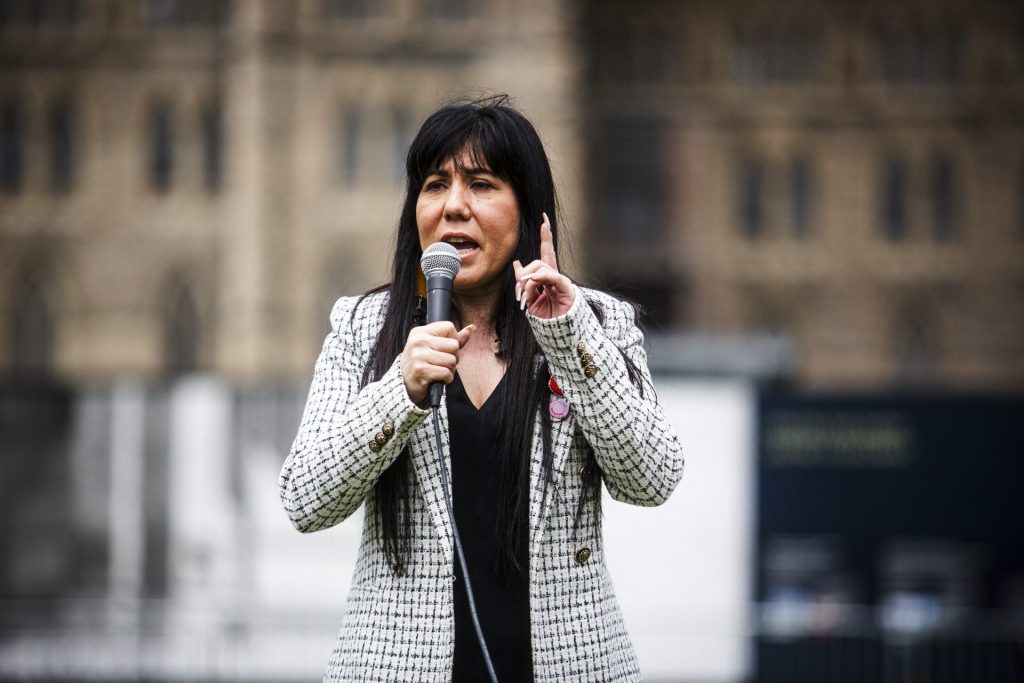Current, former NDP MPs reflect on ‘heartbreaking’ and ‘numbing’ loss, but say party is ‘laser focused’ on rebuilding

With the federal election having left the NDP with the smallest caucus in the party’s history, NDP MP Gord Johns says he’s focused on rebuilding in light of the “bittersweet victories” for the seven remaining New Democrats returning to Ottawa.
Voters wiped out the majority of the party’s caucus—13 incumbents lost in their ridings, and the party’s seat count shrank from 24 at Parliament’s dissolution to seven, dipping well below the 12 required for for official party status. Seven formerly NDP seats under the new boundaries flipped red, and another 10 went Conservative, amounting to 17 seats lost—almost two-thirds of their pre-election caucus. The party’s popularity took a nose-dive to 6.3 per cent nationally down from 17.8 per cent in 2021.
This election also saw NDP candidates’ competitiveness tank across the country, with the party increasingly not seen even as a second option. In 2021, the NDP would have secured the No. 2 spot in 81 ridings, according to a Hill Times analysis of Elections Canada data transposed onto the new boundaries. This election, that number dropped to 12. The number of close contests where the NDP lost—but had a chance—also narrowed. In 2021, the NDP was listed in 30 ridings where the victorious party won by 15 per cent margins or less. This election, that number dropped to six, with all but one of those races lost by a former NDP MP.
“It was just devastating, you know, to see how things played out,” said Johns (Courtenay-Alberni, B.C.), who is one of three B.C. New Democrats in the House of Commons. The other four returning NDP MPs hail from Alberta, Manitoba, Nunavut, and Quebec.
“The task ahead is enormous,” Johns continued. “But the seven MPs that are returning to Ottawa are all in the same boat as me. They did incredible work. They were rewarded for that. They survived.”
Among the NDP incumbents to lose their seat was former party leader Jagmeet Singh, who lost in his British Columbia riding of Burnaby Central after almost eight years in the top job. One week later, the NDP’s federal council met on May 5, voting to appoint as the interim leader Don Davies, who retook Vancouver Kingsway, B.C., by a razor-thin 303 votes, according to preliminary results.

The NDP had the most traction in British Columbia this election. Three of their seven elected MPs ran in B.C. ridings, and seven of their 13 runner-up candidates also ran in the province. But this is a very poor showing for the NDP in the province, which has historically been home to a number of safe seats for the party, as they lost a whopping 10 of 13 seats won in 2021.
Johns, one of the few incumbents returning to Parliament, is now the sole remaining NDP MP representing Vancouver Island, which is historically an orange region. Johns won his riding of Courtenay—Alberni for the fourth time with a 39.6 per cent share of the vote and a five per cent margin, besting the challenging Conservative candidate by more than 4,000 votes.
Johns’ 2021 race in the same riding was more conclusive. Elections Canada’s redistributed results for 2021—which distributes the results based on the new 2025 ridings—puts Johns at a decisive 42.9 per cent share of the vote in 2021, with the Conservatives trailing by more than 10 percentage points.
Johns said he’s “humbled” to be re-elected, and that his focus headed back to the House of Commons will be working on rebuilding the party and representing his constituents, stating he had no sights on leadership.
“I’m going to be laser focused to support the rebuild, and that will be a big thing that I’ll be working on,” he said, when asked by The Hill Times if he was considering making a bid.
Re-elected MPs Heather McPherson (Edmonton Strathcona, Alta.) and Jenny Kwan (Vancouver East, B.C.) also struck that tone in interviews with The Hill Times last week, with the latter saying the party needs to “start from the ground up,” put in “a lot of hard work,” and focus on “igniting the grassroots movement.”
Ontario was also a sore spot for the party this election. Not one MP was elected in the province, despite three incumbents running, including eight-time incumbent Brian Masse. And, of the 30 ridings where the party would have placed second in 2021, 12 hail from this province. This election, only two NDP candidates came in second in the province, but at margins that weren’t even close at more than 20,000 votes in both cases.
A particularly glaring change of colour for the NDP was on Vancouver Island. This election saw the island shift from almost entirely orange to a mix of four parties as voters grappled with the ballot-box question of what party could best tackle the threat of U.S. President Donald Trump. In 2021, six of the seven ridings on the island went orange, the only exception being the Saanich-Gulf Islands riding, represented by long-time Green Party Leader Elizabeth May.
This election, Johns and May were the only two incumbents to keep their seats—the remaining three seats went Conservative, and two went Liberal.
“I guess I was lucky,” Johns told The Hill Times when asked why he was the only NDP candidate to succeed in the region. “I didn’t fall, you know, with my other colleagues. I’m very fortunate, but it’s heartbreaking.”
A split progressive vote sank a number of NDP ridings. Cowichan—Malahat—Langford, B.C., voters elected a Conservative candidate for the first time in the riding’s 10-year history. Three-time incumbent Alistair MacGregor lost the riding by a slim margin, with Conservative MP Jeff Kibble taking the riding by a 4.6 percentage points, finishing with a 37.2 per cent of the vote.

MacGregor told The Hill Times he thought he was “going to eke out a victory,” saying that voters’ support for the Liberals led to a “brutal” vote split in the riding.
“I truly left it all out there, and so did my team … it was a bit numbing, a little bit of a shock,” he said. “Since then, I’ve actually found myself a little bit more at peace, and I think it’s because we realized we did everything that we could have, but our campaign succumbed to events that were beyond our control.”

NDP MP Leah Gazan, who won Winnipeg Centre, Man., with 39.4 per cent of the vote, said she hopes that voters will learn from the results of this election that strategic voting is not the answer in a first past-the-post system.
“Strategic voting to keep out the Conservatives resulted in 12 Conservatives being elected,” she said. “It’s unfortunate that people use the rhetoric of strategic voting. Because of so-called strategic voting … we lost a lot of good people in the NDP to Conservatives.”
Johns also pointed to a split progressive vote, explaining that he, too, was worried about his odds this election.
“Literally hundreds of voters on the door told me—they told me directly to my face—that they thought I was the best MP we had ever had, but they had to vote Liberal to stop Conservatives, when that is clearly not the history of my riding, which hasn’t voted a Liberal in in 52 years,” Johns said. “So … I was concerned.”
But not all NDP seats that went Conservative can be solely attributed to a progressive vote split. In the blue-flipped NDP stronghold of Windsor West, Ont., Masse, who has represented the riding since 2002, was unseated by first-time Conservative MP and retired police officer Harb Gill. Gill is the first Conservative to represent the riding since it was created in 1968.
Together, the Liberals and NDP took 58.7 per cent of the vote in Windsor West, Ont.—split at 30.9 per cent for the Liberals and 27.8 for the NDP incumbent Masse.
While together the two parties take a majority of the vote share, the riding saw very strong Conservative gains following the 2021 election. Support for a Conservative candidate jumped by almost 20 percentage points, going from a redistributed 19.3 per cent of the vote in 2021 to 39 per cent in 2025, leading to the election of Gill, who won by a 8.1 point margin.
Former NDP MP Charlie Angus, who opted against running for re-election in the riding of Timmins—James Bay, Ont., wrote in a April 30 Substack post that although strategic voting led to Conservative wins in “numerous races,” many NDP ridings went blue because traditional NDP voters abandoned the party.
“Here we mirror the troublesome facts of the MAGA 2.0 victory. Trump succeeded because key working class regions turned against the Democrats. That same sense of disaffection flipped some traditional NDP strongholds here in Canada,” wrote Angus, who held a seat in the House between 2004 to 2025.
ewand@hilltimes.com
The Hill Times






 LICENSING
LICENSING PODCAST
PODCAST ALERTS
ALERTS













